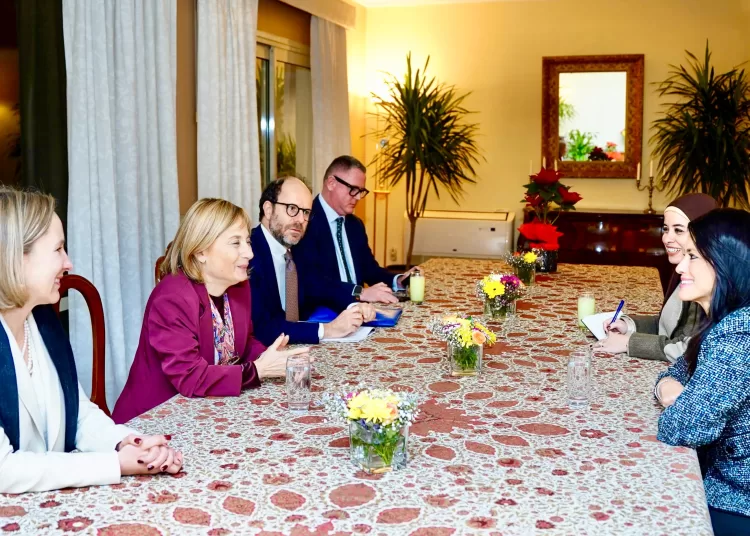Egypt’s Minister of Planning at the International Economic Cooperation, Rania Al-Mashat, and Gelsomina Vigliotti, Vice-President of the European Investment Bank (EIB), discussed in Cairo on Friday ways to enhance future co-operation.
EIB is one of Egypt’s most prominent development partners, contributing to financing a large number of development projects across various key economic sectors.
The discussions touched on future cooperation priorities in light of Egypt’sneedto enhance its economic development, citing the bank’skey role in supporting the private sector through innovative financing instruments and creating newopportunities to enhance public and private investments.
Minister Al-Mashat and the EIB delegation, led by Vigliotti, reviewed joint prominent ongoing projects in green hydrogen, water desalination, renewable energy, health, and irrigation.
The talks also highlighted the bank’s efforts in supporting entrepreneurship and startups as well as cooperation with Norway’s Scatec in renewable energy, green hydrogen, and water desalination.
Al-Mashat has stressed the importance of boosting the South-South cooperationthrough EIB’s regional office in Cairo, citing that know-how exchangeamong developing countries can contribute to bridging development gaps and achieving integration in overcoming challenges.
Minister Al-Mashat and the EIB delegation also focused on the Nexus of Water, Food and Energy (NWFE), which covers energy, food, water, and sustainable transportation. The discussions also highlighted cooperation in health projects, especiallyvaccine manufacturing, and sustainable green industry projects.
The two sides stressed the importance of ongoing cooperation between the Planning at the International Economic Cooperation and the bankin advancing sustainable development efforts in Egypt, citing collaboration in housing, health, irrigation and electricity.
Egypt and EIB started cooperation in 1979, and a total of 127 sustainable investment projects worth €14 billion were financed across the public and private sectors.






Discussion about this post